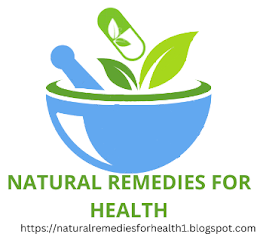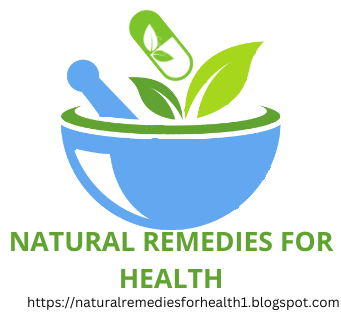Natural Remedies for Eczema: Soothe and Heal Your Skin
Table of Contents
- Introduction
- What is Eczema?
- Common Symptoms of Eczema
- Identifying Triggers for Eczema
- Natural Remedies for Eczema
- Lifestyle Tips for Managing Eczema
- When to Seek Medical Advice
- Conclusion
- FAQs
Introduction
Eczema is a common skin condition that affects millions of people worldwide. It causes the skin to become inflamed, red, itchy, and sometimes even cracked or blistered. Dealing with eczema can be uncomfortable and frustrating, but there are several natural remedies that can help soothe and heal your skin without resorting to harsh chemicals.
What is Eczema?
Eczema, also known as atopic dermatitis, is a chronic skin condition characterized by dry, itchy, and inflamed patches of skin. It often appears in the creases of elbows, knees, and wrists, but it can affect any part of the body. Eczema is commonly seen in children but can also affect adults.
Common Symptoms of Eczema
The symptoms of eczema can vary from mild to severe and may include:
- Itchy skin
- Red or brown patches on the skin
- Dry, cracked, or scaly skin
- Swelling and inflammation
- Oozing or crusting of the affected areas
- Discolored areas of skin
- Sensitivity to certain substances
Identifying Triggers for Eczema
Before exploring natural remedies, it's essential to identify and avoid triggers that may worsen eczema symptoms. Common triggers include:
- Irritants such as soaps, detergents, and harsh chemicals
- Allergens like pet dander, pollen, and mold
- Extreme temperatures or humidity
- Stress and anxiety
- Certain fabrics like wool or synthetic materials
By recognizing and avoiding these triggers, you can effectively manage eczema and prevent flare-ups.
Natural Remedies for Eczema
Aloe Vera Gel
Aloe vera has anti-inflammatory properties that can help reduce redness and itching. Apply pure aloe vera gel to the affected areas for soothing relief.
Coconut Oil
The moisturizing properties of coconut oil can provide much-needed hydration to dry, eczema-prone skin. Massage coconut oil onto the affected areas regularly.
Oatmeal Baths
Taking baths with colloidal oatmeal can help relieve itching and irritation. Oats contain compounds that soothe inflamed skin.
Honey
Honey is known for its antimicrobial properties and can help heal cracked skin. Apply a thin layer of honey to the affected areas and leave it on for a few minutes before rinsing.
Tea Tree Oil
With its antibacterial and anti-inflammatory effects, tea tree oil can help fight infections and reduce inflammation when diluted and applied to the skin.
Chamomile
Chamomile has calming and anti-itching properties. Applying chamomile-infused oil or cream can ease eczema symptoms.
Calendula Cream
Calendula is believed to promote skin healing. Using calendula cream can help reduce inflammation and soothe eczema.
Evening Primrose Oil
Evening primrose oil contains gamma-linolenic acid, which can help reduce inflammation. Applying this oil topically may ease eczema symptoms.
Probiotics
Probiotics can help improve gut health, potentially reducing eczema symptoms in some people.
Witch Hazel
Witch hazel has astringent properties that can help soothe itchy skin and reduce inflammation.
Apple Cider Vinegar
Diluted apple cider vinegar can act as a natural antiseptic and may alleviate itching and irritation.
Sunflower Seed Oil
Sunflower seed oil is rich in vitamin E and can help moisturize and nourish the skin.
Lifestyle Tips for Managing Eczema
In addition to using natural remedies, certain lifestyle changes can further manage eczema:
- Keep the skin moisturized by using gentle, fragrance-free moisturizers.
- Avoid scratching the affected areas, as it can worsen the condition.
- Wear soft, breathable fabrics to prevent irritation.
- Maintain a healthy diet rich in vitamins and minerals that support skin health.
- Practice stress-reducing techniques, such as meditation or yoga, to manage emotional triggers.
When to Seek Medical Advice
While natural remedies can be effective for many individuals, eczema may require medical attention in some cases. If the condition is severe, persists, or significantly impacts your daily life, it's essential to consult a dermatologist or healthcare provider for proper evaluation and personalized treatment.
Conclusion
Natural remedies can be a valuable addition to managing eczema and promoting healthier skin. By using gentle, natural ingredients, you can soothe and heal your skin without harsh chemicals. Remember to identify and avoid triggers, make lifestyle adjustments, and seek medical advice if needed. With proper care and attention, you can find relief and improve the quality of your skin and life.
FAQs
What causes eczema?
Eczema is believed to be caused by a combination of genetic and environmental factors. It is often linked to an overactive immune response to triggers.
Is eczema contagious?
No, eczema is not contagious. It is a non-infectious skin condition.
Can stress worsen eczema symptoms?
Yes, stress can exacerbate eczema symptoms as it can weaken the immune system and trigger flare-ups.
How long does it take for natural remedies to work on eczema?
The effectiveness of natural remedies can vary from person to person. Some may experience relief within a few days, while others may take longer.
Can diet affect eczema?
Yes, certain foods may trigger or worsen eczema symptoms in some individuals. It's essential to pay attention to your diet and identify potential triggers.



















2 Comments
Nice information
ReplyDeletegood information
ReplyDelete